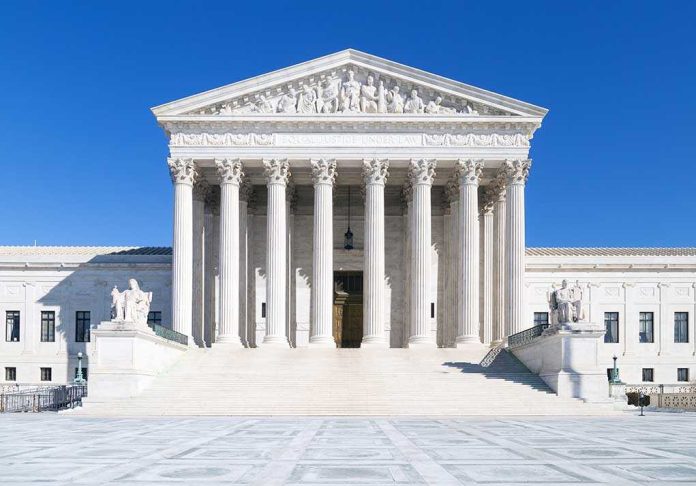
The Supreme Court’s decision to uphold a $1.4 billion judgment against Alex Jones and Infowars marks a monumental shift in the battle against misinformation.
Story Snapshot
- Supreme Court declines to hear Alex Jones’s appeal, solidifying damages for Sandy Hook families.
- Families awarded over $1.4 billion for defamation and emotional distress caused by Jones’s false claims.
- Jones’s legal avenues are exhausted, intensifying financial pressure on Infowars.
- Case highlights limits of free speech in cases of deliberate defamation.
Supreme Court Verdict and Its Implications
The Supreme Court has refused to hear Alex Jones’s final appeal, leaving the $1.4 billion judgment against him intact. This financial and legal blow comes after years of litigation by the families of Sandy Hook victims. They sought justice for the relentless harassment stemming from Jones’s false claims that the 2012 shooting was a hoax. This decision marks a significant legal precedent in holding media figures accountable for spreading harmful misinformation.
The refusal by the Supreme Court underscores a judicial consensus on the gravity of the case. It highlights the limits of free speech protections when it comes to willful defamation. By declining to intervene, the court has sent a clear message about the consequences of spreading false conspiracy theories, especially those that cause severe emotional distress and societal harm.
Timeline of Events Leading to the Verdict
The tragedy at Sandy Hook Elementary School on December 14, 2012, resulted in the loss of 20 children and 6 adults. Soon after, Alex Jones began promoting the false narrative that the massacre was a staged event. This led to years of harassment for the families involved, prompting them to file defamation lawsuits in 2018. In 2022, courts in Connecticut and Texas awarded over $1.4 billion in damages. Jones’s subsequent appeals and bankruptcy filings were attempts to shield his assets and prolong the legal battle.
The Supreme Court’s rejection on October 14, 2025, is the final chapter in this prolonged legal saga. It solidifies the damages awarded, leaving Jones with no further legal recourse. This outcome not only impacts Jones and Infowars financially but also sets a legal standard for future cases involving misinformation and defamation.
Operational and Financial Fallout for Infowars
With the judgment upheld, Infowars faces an uncertain future. The company is under intense financial pressure, with ongoing bankruptcy proceedings and potential asset liquidation. Lawyers representing Jones have stated that the full amount may not be collectible, but the legal obligation remains. Meanwhile, the Sandy Hook families are pushing for the sale of Infowars assets, seeking compensation and justice for the harm caused.
The potential liquidation of Infowars sends ripples through the media landscape. It serves as a cautionary tale for other media figures and platforms that engage in spreading falsehoods. The financial and operational consequences faced by Jones and Infowars could deter similar behavior, encouraging more responsible media practices and content standards in the future.
Broader Implications and Precedents
This case has far-reaching implications beyond the immediate parties involved. It sets a legal precedent for holding conspiracy theorists accountable for defamation, especially in cases involving mass tragedies. The legal and financial reckoning faced by Jones could influence future legislation or court cases related to free speech and defamation laws.
The broader media and conspiracy theory communities are likely to face increased scrutiny and legal challenges. This verdict reinforces the importance of factual accuracy and accountability in media reporting. It underscores the societal need to combat misinformation and protect the victims of such false narratives from further harm.









